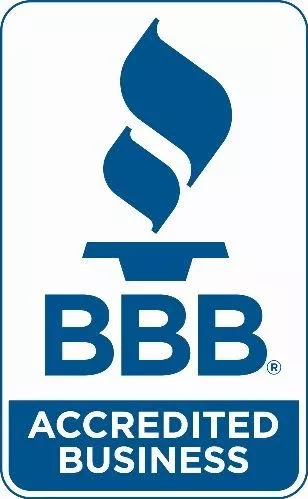Effective communication is one of the most crucial skills for any manager or team leader. A manager’s ability to clearly articulate ideas, provide constructive feedback, listen actively, and foster an open, collaborative team culture can significantly influence the success of a project, department, or organization.This article will explore ten essential communication skills for managers and team leads to effectively lead and inspire their teams.
Skills for Effective Communication at the Workplace
These skills not only help in building trust and confidence but also contribute to recognition, respect, and opportunities for professional growth.
1. Active Listening
Active listening is the foundation of effective communication. Managers and team leads must do more than just hear what their team members say. They must actively engage in understanding the message. Active listening involves paying full attention, providing feedback, and responding appropriately.
When you listen actively, you convey respect and value for the speaker’s perspective. This encourages an open dialogue, ensuring that team members feel heard and understood. Moreover, active listening helps managers uncover potential problems early, address concerns proactively, and come up with better solutions.
Tips for active listening:
- Avoid interrupting the speaker.
- Maintain eye contact to show attentiveness.
- Ask follow-up questions to clarify points.
- Reflect back on what’s been said to ensure understanding.
2. Be Clear and Concise
Managers must communicate ideas, expectations, and feedback clearly and concisely. The ability to explain complex concepts or strategies in simple, understandable terms is essential for successful leadership. Whether you’re presenting a new project or explaining the company’s vision, clarity reduces the chance of miscommunication and confusion.
Being concise doesn’t mean being abrupt or dismissive. Instead, it involves stripping away unnecessary details while ensuring the core message is communicated effectively. Clear communication ensures everyone is on the same page, reducing the likelihood of errors and inefficiencies.
Tips for clear communication:
- Organize your thoughts before speaking or writing.
- Use simple language, avoiding jargon unless necessary.
- Stick to the key points and avoid over-explaining.
3. Empathy
Empathy is the ability to understand and share the feelings of others. For a manager or team lead, empathy goes beyond being a good listener; it’s about putting yourself in your team members’ shoes and understanding their perspectives. Empathetic communication fosters trust, makes employees feel valued, and promotes a supportive workplace culture.
When a manager shows empathy, they build deeper, more meaningful connections with their team. They are more likely to gain insight into challenges their team faces and offer support that helps improve performance. Empathetic managers can also defuse conflict more effectively and mediate solutions that work for everyone.
Tips for demonstrating empathy:
- Acknowledge emotions and show understanding.
- Ask open-ended questions to get to the root of concerns.
- Provide support when team members are going through personal or professional challenges.
4. Feedback and Constructive Criticism
Providing feedback is one of the most important communication skills for managers or team leaders. Feedback should be constructive, specific, and timely. It’s not just about pointing out mistakes but also reinforcing good behavior and achievements. Constructive feedback can help individuals grow, improve their performance, and feel more confident in their abilities.
It’s essential to balance positive and negative feedback. When giving negative feedback, avoid making it personal. Focus on the issue and how it can be corrected. Providing actionable advice and guidance on how the employee can improve ensures that feedback is both helpful and motivational.
Tips for delivering feedback:
- Use the “SBI Model” (Situation, Behavior, Impact) to provide context.
- Focus on behaviors that can be changed, not personal traits.
- Offer feedback in private, ensuring the individual feels respected.
- Be specific so the individual understands exactly what can be improved.
5. Non-verbal Communication
Non-verbal communication often speaks louder than words. A manager’s body language, facial expressions, and tone of voice all play a role in how their messages are received. Positive non-verbal communication can inspire trust and respect, while negative body language can create misunderstandings or convey disinterest.
Managerial skills and qualities aren’t limited to verbal cues. Managers must also be conscious of their body language during interactions. For example, maintaining good posture, using appropriate gestures, and avoiding crossing arms can project openness and confidence. Additionally, managers should pay attention to non-verbal cues from their team members to gauge how they are responding to discussions and make adjustments as needed.
Tips for effective non-verbal communication:
- Maintain open body language and avoid defensive gestures.
- Use a calm, steady tone to convey authority without being intimidating.
- Be mindful of your facial expressions—smiling can build rapport, while a lack of expression can seem disengaged.
6. Conflict Resolution Skills
Conflict is inevitable in any workplace, but how managers handle it can make or break team dynamics. Conflict resolution is a vital communication skill for managers and team leads. Rather than ignoring conflicts or letting them escalate, effective leaders use their communication skills to address disputes early on.
Good conflict resolution involves listening to both sides, understanding the root cause of the issue, and facilitating a solution that satisfies everyone involved. Effective conflict resolution promotes harmony, fosters trust, and helps to prevent further misunderstandings. Managers who handle conflict well are seen as fair and approachable leaders.
Tips for resolving conflicts:
- Stay neutral and avoid taking sides.
- Listen actively to all parties involved.
- Focus on finding common ground and mutually beneficial solutions.
- Follow up to ensure the resolution is effective.
7. Persuasion and Influence
The ability to persuade and influence others is a key skill for managers who need to guide their teams toward shared goals. Managers often need to influence team members, peers, or upper management to support their ideas or decisions. Whether it’s getting buy-in on a new project or convincing a team to adopt a new process, persuasive communication can help you lead effectively.
Persuasion involves clearly articulating the benefits of an idea, addressing concerns, and providing compelling reasons why others should support it. Influence doesn’t rely on authority alone. Influence is also about building trust and gaining respect. The more you can demonstrate how your vision aligns with the team’s or organization’s goals, the more effective your persuasion will be.
Tips for persuasion and influence:
- Use evidence and data to support your ideas.
- Understand your audience’s motivations and tailor your message accordingly.
- Appeal to emotions and logic when appropriate.
- Build credibility by consistently delivering on promises.
8. Adaptability in Communication
Every team and individual has their own communication style. Some employees may prefer emails, while others may prefer face-to-face meetings. Being adaptable in your communication approach allows you to interact effectively with different personalities and work styles.
For example, some team members may need more detailed instructions, while others may thrive on autonomy. A manager must learn to read these cues and adjust communication styles accordingly. Adapting your communication style helps ensure that the message is received and understood, leading to more productive and harmonious working relationships.
Tips for adaptable communication:
- Observe your team’s preferences and adapt accordingly.
- Be flexible in choosing the communication medium—whether in person, by phone, or through digital platforms.
- Be open to feedback on your communication style and adjust as necessary.
9. Public Speaking and Presentation Skills
Managers often need to speak in front of groups, whether it’s presenting ideas at a team meeting, giving a report to upper management, or even speaking at company events. Strong public speaking and presentation skills can enhance a manager’s credibility and visibility within the company.
Effective public speaking requires clear articulation, confidence, and the ability to engage the audience. Managers who can confidently present their ideas and information are seen as leaders, and their teams are more likely to rally behind their vision. Public speaking also opens up doors to new opportunities and professional growth.
Tips for improving public speaking:
- Prepare thoroughly and organize your thoughts before speaking.
- Use visual aids or slides to help convey your message.
- Practice your delivery to reduce nervousness and increase confidence.
- Engage the audience by asking questions and inviting discussion.
10. Emotional Intelligence (EQ)
Emotional intelligence (EQ) is the ability to recognize and manage your emotions, as well as the emotions of others. A high EQ helps managers effectively navigate complex interpersonal dynamics, motivate team members, and create a positive work environment.
Leaders with strong emotional intelligence can remain calm under pressure, handle stressful situations with grace, and manage their reactions to challenges. They are also adept at recognizing and understanding the emotions of their team members, allowing them to respond with empathy and tact. Emotional intelligence is vital for conflict resolution, motivation, and maintaining a harmonious team dynamic.
Tips for developing emotional intelligence:
- Reflect on your emotional responses and how they affect your communication.
- Practice self-regulation to manage stress and remain composed.
- Be aware of the emotional states of your team members and adjust your communication accordingly.
- Cultivate empathy by actively listening and validating others’ feelings.
Effective communication is at the heart of leading a team. By improving these skills, managers not only become better leaders but also open doors to greater professional visibility, respect, and growth opportunities. In the end, communication is the key to unlocking the potential of both the manager and their team, driving success for the entire organization.
Educo Solutions specializes in personalized marketing strategies that increase engagement and achieve higher returns on investment. Through a combination of creativity and data-driven research, we ensure your message resonates with your ideal audience, converting customer interest into profitable sales. Contact us to learn more about how we can help your business maximize resources and optimize marketing efforts.



